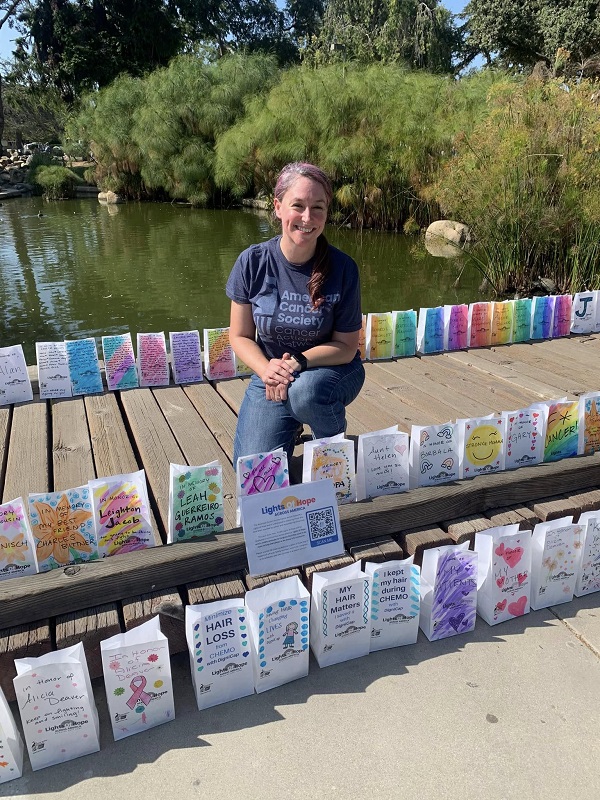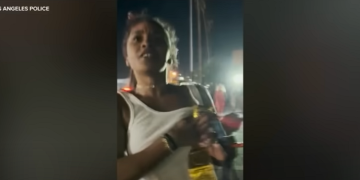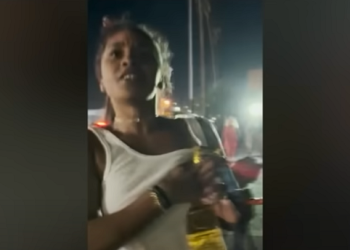Police Chief Charlie Beck said Tuesday that “on initial review,” he believes the officers who detained actress Daniele Watts after responding to a report of a couple engaged in lewd behavior inside a car in Studio City acted properly.
Beck said he briefly reviewed witness interviews and photographs from the event and found the officers “responded to a reported crime, and upon arrival, they investigated that crime and took proper actions.”
He said the officers “did exactly what the people of Los Angeles would expect.”
The actress, best known for her role in “Django Unchained,” has criticized the actions of police, complaining that she was handcuffed and briefly detained on a Studio City street on Thursday because officers mistook her and her boyfriend for a prostitute and customer. Watts also declined to provide her ID to an officer, prompting a lengthy exchange that has drawn national attention.
According to the LAPD, a witness called police around 3 p.m. Thursday and reported that a man and woman were engaged in indecent activities inside a Mercedes-Benz with the door open in the 11900 block of Ventura Boulevard. A responding sergeant and police officer briefly detained Watts and her companion — local chef Brian James Lucas — because they matched the descriptions given by the witness, police said.
Upon further investigation, however, it was determined that no crime had been committed and the couple were let go.
Beck said the officers who detained Watts were responding to a report by a witness who saw what was believed to be “an act of consensual sex.”
“The officers were directed to that location because a citizen observed what they believed to be a crime and called the police department,” the chief said.
Beck said his opinion about the incident is based on an “admitted cursory review” and that his statements should have no bearing on the results of an investigation opened into the officers’ conduct.
An audio recording of the officers’ confrontation with Watts has since been released, apparently by one of the officers who used a non-LAPD recorder. Part of the department’s investigation will be into the “propriety of the release of the video tape if it was released by the sergeant,” Beck said.
Beck said “as a general rule,” he does not allow officers to release recordings of events.
Beck did praise the “efficacy” of having video or audio recordings of interactions between the police and the public, saying he is “glad” to have a recording “which supports a version of the incidence.”
On the audiotape, Watts suggests to the officers that she was being detained because she is black and Lucas is white, leading them to believe she was a prostitute.
Beck said the actress’ detention has generated “considerable discussion,” and he defended the officers’ right to ask for the actress’ ID, saying if there is “reasonable suspicion” that a crime was committed and a person refuses to produce identification, “they could be found guilty of delaying or obstructing a police investigation.”
He added that “there is no absolute requirement in California that a person carry ID or provide it just on demand by a police officer.”
“However, if you are being investigated for another offense, and your identity is important in the investigation of that offense, then you must, by state law, comply with the legal authority of the officer, which is to request your ID,” he said.
Some civil rights advocates disagreed. ACLU of Southern California Executive Director Hector Villagra said the audiotape of the conversation “indicates the officer repeatedly told Ms. Watts that he had the right to detain her for refusing to provide identification.”
“That is simply wrong,” Villagra said. “In California, police cannot arrest someone for refusing to provide identification. If you don’t want to provide identification, you can politely say you do not want to do so and ask if you are free to go.”
Watts plays comedian Martin Lawrence’s daughter in the new FX comedy “Partners.”





















